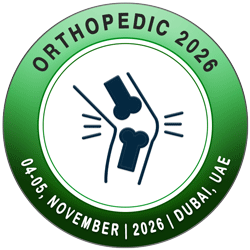Track: Rheumatology and Arthritis

Rheumatology focuses on the diagnosis, treatment, and management of diseases that primarily affect the joints, muscles, bones, and soft tissues. While many rheumatic conditions can be managed through non-surgical approaches, some patients may require surgical intervention, particularly when joint damage is severe or non-responsive to other treatments. Rheumatology surgeries involve procedures designed to improve joint function, alleviate pain, and prevent further damage caused by chronic inflammation or autoimmune processes.
Key Topics and Highlights:
- Osteoarthritis
- Rheumatoid arthritis
- Gout
- Lupus
- Scleroderma
- Ankylosing spondylitis
- Back pain
- Psoriatic arthritis
- Sjogren's syndrome
- Vasculitis
- Juvenile idiopathic arthritis
- Musculoskeletal pain disorders
- Other rheumatology
- Pain in rheumatic diseases
Summary:
This session will explore the various surgical techniques used in the management of rheumatic diseases, particularly focusing on joint replacement, arthroscopy, synovectomy, and other procedures aimed at restoring joint function and relieving pain. Leading surgeons in the field of rheumatology will discuss the indications, advantages, and challenges associated with each surgical option. Attendees will gain a deeper understanding of how surgery can complement medical treatment in managing complex and debilitating rheumatic conditions, enhancing patient outcomes and quality of life.
Scientific Highlights
- Orthopedic Surgery
- Orthopedics and Sports medicine
- Orthopedics and Arthroscopy
- Orthopedic Physiotherapy
- AI and Robotics in Orthopedics
- Arthritis: Types, Diagnosis and Treatment
- Arthoplasty and Oncology
- Musculoskeletal Disorders, Medical and Clinical Trials
- Rheumatology and Arthritis
- Foot & Ankle Surgery
- Spine Disorders and Surgery
- Physical Medicine and Rehabilitation
- Neurology and Orthopedic surgery
- Orthopedic Radiology
- Orthopedics and Osteoporosis
- Other Orthopedic Trauma: Surgery and Conditions


